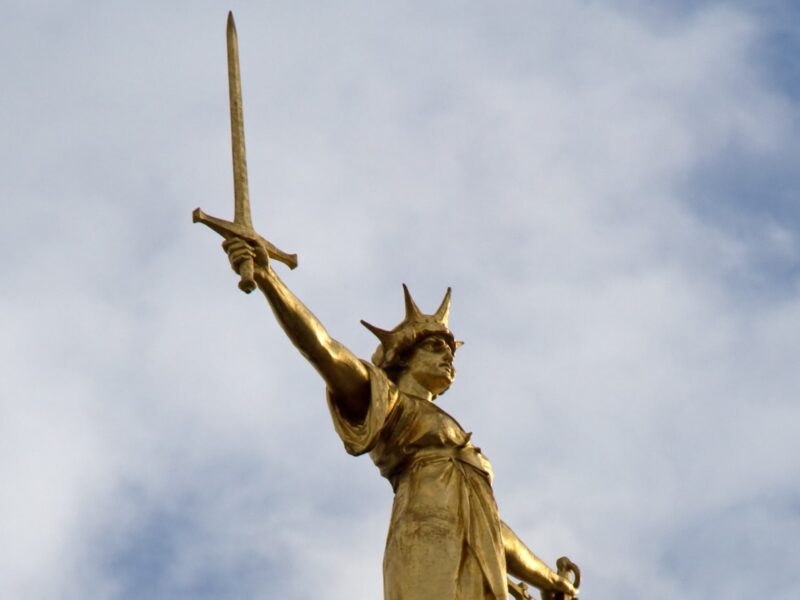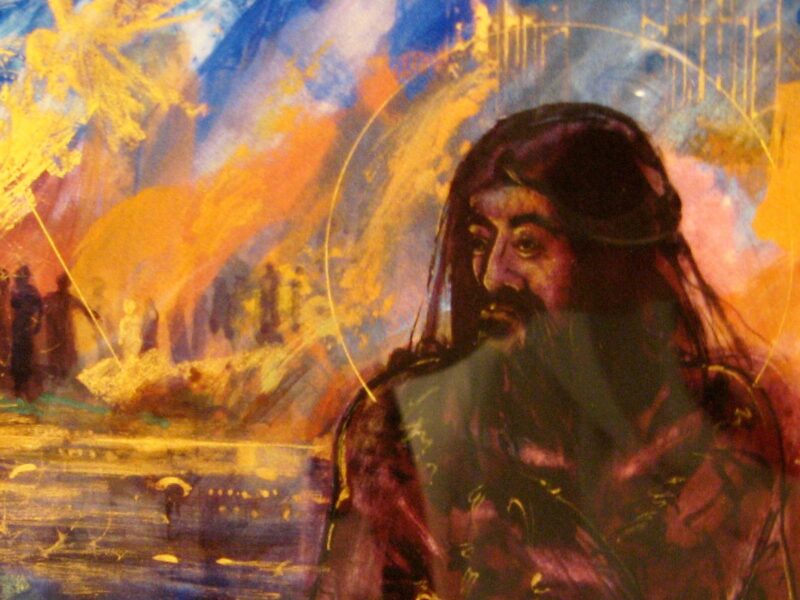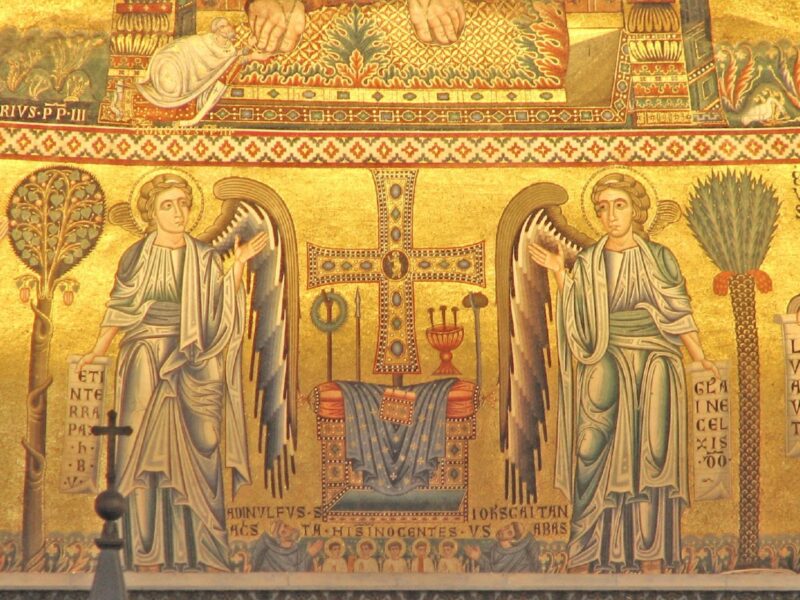
The Third Way
Thirty-second Sunday of the Year. Fr Richard Joseph Ounsworth encourages us to let our hope exceed our imagination.
One of my brethren, now deceased, used to suggest that we Christians have more in common with atheists than we do with pagans. Like atheists, we refuse to believe in ‘the gods’ – our God is not one of ‘the gods’, and that which the atheist denies, we too deny. I think that perhaps when Herbert McCabe (for it was he) was writing his books and making these arguments, atheists were a more philosophically sophisticated bunch than many famous ones are today. It is easy to imagine Herbert getting frustrated at the cheap and childish way in which all religions, but especially Christianity, are attacked by those who clearly have made no attempt to understand what we mean when we say ‘God’ before they reject his existence.
This sort of cheap and trivial sniping is what Jesus is subject to in today’s Gospel, and it seems that at the fundamental level Jesus’s response is the same as Herbert’s: what his opponents deride as nonsense is nonsense indeed. But Christ offers a third way of thinking, a way that is neither an infantile fantasy nor the pseudo-maturity of sneering cynicism. The third way is the way of hope.
For there are three attitudes we might take to death and what comes after. We might insist, as many do, that death is the end, the body rots and there is nothing more to be said. This attitude of despair is that of the Sadducees. It can lead to a life of anguish, but equally it can lead to pure hedonism: ‘eat, drink and be merry, for tomorrow we die.’
Alternatively, we might pretend that death is nothing at all, that our loved ones have merely ‘slipped into the next room’. Everything is really the same, except that the dead cannot be seen. Granny has gone to live in heaven, just like Fido went to live on a lovely farm in the countryside.
Jesus’s third way is the way of hope and vision. We believe – because he taught us to believe – in a radically transformed world, and in a radical transformation of ourselves also. This belief is based on the promises of Christ, and also on the logic of Christ: God is the Lord of the living, he made us to live, to know him and to love him and to serve him in this world and to be happy with him for ever in the next. This hope is based on our certain faith that we are loved into being, held in existence every moment by a love that is stronger than death.
But this third way also requires us to recognise that what comes afterwards, for each of us and for the whole world, is something beyond our imaginings. Jesus says that the dead are ‘the same as the angels’; but we have no idea what angels are really like, so this just reminds us that we cannot really begin to imagine the life of the resurrection. We must not tame our vision, reduce our hope to something that we can imagine, lest we fall into the trap of believing in the kind of afterlife that the Sadducees (ancient and contemporary) find is easy to mock.
Our hope exceeds our imagination. There are some things we can say with confidence: that love is stronger than death, that we are made to be bodily creatures, made as bodily creatures to enjoy the presence of God and of one another for eternity. But let us not pretend that we know what this will be like. We only know that it will be a joy more powerful and overwhelming than we have ever known.
This is our hope. It is a hope that goes beyond imagination as well as beyond logic. If we are to bring this hope into a world that so desperately needs it, so desperately needs rescuing from its lack of hope and of imagination, a world torn between childish fantasy and the sneering mockery of a false adulthood, then it is our task to begin by giving the world a glimpse of the love that is stronger than death.
Readings: 2 Maccabees 7:1-2,9-14 | 2 Thessalonians 2:16-3:5 | Luke 20:27-38
Image: detail from a ceiling fresco of the Immaculate Conception from the church of Santa Maria dell’Orto in Trastevere, Rome, photographed by Fr Lawrence Lew OP



Alejandro Clausse
I was delighted to read Richards’s homily “The third way”, the apophatic way. It makes me remind Denys Turner’s insightful essay “How to be an atheist” (published in Seeking Faith, SCM Press, London, 2002).
David John Connor
I have to say how much I enjoyed Fr. Richard’s homily for this Sunday. The idea that we must not tame our vision was one that resonated with me deeply, and I thank him very much for that.
Pius Mathew
Thank you Fr. Richard for your very meaningful homily.
Joanne Butler
This is exactly why we have the Maccabee books in our Bible. It demonstrates how the belief in the Life Eternal existed in man’s time prior to the Nativity. Having had the sad but necessary job of finding Old Testament readings for funerals, I was comforted by the passage in 2 Maccabees. Thank you Fr Richard.